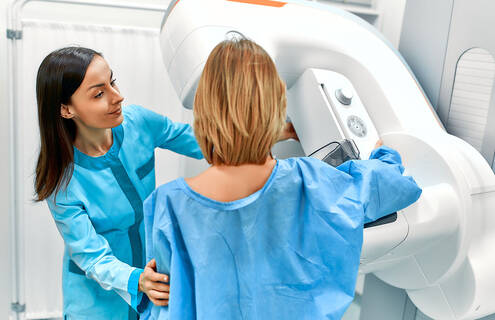
Getting cancer isn't just a roll of the dice. You can take action to help lower your risk.
Dartmouth Associate Professor of Epidemiology, Medicine and Pediatrics, Diane Gilbert-Diamond, ScD, gives these tips on cancer-smart behaviors in WMUR’s Health Talk series.
Eat the right food and manage your weight
Research supports that you can reduce your risk of developing cancer by having a diet that is rich in fruits vegetables, and fiber. Drinking alcohol in moderation and limiting how many processed meats you eat is also important. A healthy diet also can help you maintain a healthy weight, which also reduces the risk of many types of cancer. If you need help changing your diet or losing weight, speak to your healthcare provider.
Get your cancer screenings
Cancer can affect anybody, but screening and early detection lowers your risk. Having recommended skin, colon, lung, cervical, and breast screenings can detect developing cancers early when treatments are most likely to succeed. Talk to your healthcare provider about what cancer screenings are recommended for you and follow through. It can save your life.
Stay tobacco-free
One of the most important things that you can do to reduce your risk of cancer is to stay tobacco-free. Smoking tobacco increases the risk of developing lung, mouth, throat, and many other cancers. Other tobacco products, like chewing tobacco, also increase cancer risk. If you need help quitting tobacco, talk to your healthcare provider.
Protect your skin
Protecting yourself from the sun is an important way to reduce your risk of developing skin cancer. Try to stay out of the sun between 10 am and 2 pm when the sun’s rays are strongest. When outdoors, you also can avoid damage from the sun’s strongest rays by staying in the shade, wearing a hat, covering your skin, and applying sunscreen with an SPF of at least 30 every two hours or more often when swimming or sweating.
Consider vaccinations
Viruses cause some cancers and you can protect yourself by getting vaccinated. Contracting human papillomavirus (HPV) increases your risk of cervical cancer, other genital cancers, as well as head and neck cancers. Thankfully, there is a vaccine against HPV that you can take to reduce your risk of contracting the virus and developing related cancers. There is also a vaccine against Hepatitis B, a virus that increases your risk of liver cancer. Talk to your healthcare provider to learn more.
To find a specialist, learn more about cancer, join a clinical trial, or get other cancer-related news and information, visit the Dartmouth Cancer Center.